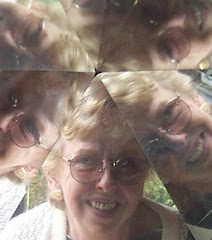RECENT READS
Another month of winter gone by! Where does time go? Actually, we’ve had it better than most of the country, although this has been a rainy winter, and one morning we woke up to find a thin layer of snow on the ground. It was gone within an hour or so, but the cold nights continue. The days are spring-like, though, warm and for the most part sunny.
I’ve been reading a lot this winter, and am now into “Eats, Shoots and Leaves” by Lynne Truss. This book made the rounds quite a few years ago, but I didn’t have time to read it then. This book provides “the zero tolerance approach to punctuation,” and is a useful guide to why it’s important where we put our commas, apostrophes, and other punctuation marks. I recommend it to anyone who wants to understand punctuation. According to my husband, this should be a must read for all writers. I agree!
By the way, the title refers to the diet of a Panda, and should be “Eats Shoots and Leaves.”
I also recently finished a book by a Cuban who as a child was airlifted out of Cuba following the Revolution. Those of you who have read my book, “Looking Back” probably remember the story by Celeste Cañizares Dieppa, who was on one of the last airlifts from Havana to the United States in 1966 at the age of fourteen. This book, “Waiting for Snow in Havana” by Carlos Eire, is about growing up the son of a judge, then having to evacuate Cuba at age eleven in 1962 with his older brother. He left behind both his parents to start a new life of freedom in the States, first in foster homes, then in the home of an uncle in Illinois until his mother could join them more than three years later.
This is a very warm, touching, detailed story of paradise lost followed by the tale of a marginal life in Chicago, and of never seeing his father alive again. I recommend it to those who enjoy reading about different cultures with a slant on history that is little understood today in this country. In the late fifties Cuba was almost like an extension of the United States because of its tourism and American business interests there, but possessing a unique culture of its own when Castro took over on January 1, 1959. He soon declared individually owned homes, land, and everything valuable to be “owned by the people” in what was to become a communist country in the midst of the Cold War, sending chills down the collective spine of the United States. After all, this country was within 90 miles of the United States, striking distance for communist missiles!
"Waiting for Snow in Havana" is a rich and very personal insider's story about what it is like to lose paradise and move to a very different climate and culture in search for the one thing that was deemed more important than culture and climate: to regain freedom.


No comments:
Post a Comment